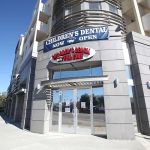How to Prevent Tooth Infections After Dental Surgery
- 1. Understanding Tooth Infections After Dental Surgery
- 2. The Importance of Post-Surgery Care in Preventing Infections
- 3. Common Causes of Tooth Infections After Dental Surgery
- 4. Effective Steps to Prevent Tooth Infections
- 5. Real-Life Case Study: Avoiding a Tooth Infection After Wisdom Teeth Removal
- 6. When to Seek Medical Help for Tooth Infections
1. Understanding Tooth Infections After Dental Surgery
Tooth infections after dental surgery are a common concern for many patients. While modern dental procedures are generally safe, the risk of developing an infection can never be completely eliminated. A tooth infection, also known as an abscess, can occur when bacteria enter the body through the surgical site. This can lead to swelling, pain, and in some cases, more severe complications if left untreated.
After dental procedures such as tooth extractions, root canals, or implants, it’s crucial to take preventive measures to avoid any post-surgery infections. Infections can not only prolong the healing process but may also cause additional complications, requiring further treatments or even hospitalization in extreme cases.
2. The Importance of Post-Surgery Care in Preventing Infections
Post-surgery care plays a critical role in preventing infections after dental procedures. The mouth is home to millions of bacteria, and a surgical site provides an easy entry point for those bacteria to cause trouble. Following your dentist’s or oral surgeon’s aftercare instructions closely is vital to minimizing the risk of an infection.
Proper care includes keeping the surgical site clean, managing pain and swelling, and avoiding actions that could irritate the area. Not taking the necessary precautions can lead to bacteria thriving in the area, potentially leading to a severe infection.
3. Common Causes of Tooth Infections After Dental Surgery
Several factors can contribute to a tooth infection after dental surgery. Understanding these factors will help you take better precautions and avoid unnecessary complications.
3.1 Poor Oral Hygiene
Failure to maintain proper oral hygiene after surgery is one of the most common causes of infections. It’s crucial to gently clean your teeth and mouth after surgery, but you should avoid brushing directly on the surgical site for a period of time as directed by your dentist.
3.2 Bacterial Contamination
Even the smallest amount of bacteria entering the surgical site can lead to infection. This can happen if you touch the area with unclean hands, use a contaminated oral device, or consume food that’s not suitable during the healing process.
3.3 Smoking and Alcohol Use
Smoking and drinking alcohol after surgery can hinder the body’s ability to heal and make it more prone to infections. Smoking, in particular, reduces blood flow to the gums, making it harder for your body to fight off bacteria in the surgical site.
4. Effective Steps to Prevent Tooth Infections
There are several steps you can take to significantly reduce the risk of developing a tooth infection after dental surgery. Here are some of the most important ones:
4.1 Follow Your Dentist’s Aftercare Instructions
The first step in preventing infections is to follow all aftercare instructions provided by your dentist or oral surgeon. These instructions typically include how to clean the surgical area, medications to take, and how to manage any swelling or discomfort.
4.2 Maintain Oral Hygiene
Gently brushing your teeth and rinsing your mouth with a saltwater solution can help prevent bacteria buildup near the surgical site. Be sure to avoid the surgical area until it heals enough to not cause irritation. Your dentist might also recommend a special mouthwash to use during the healing period.
4.3 Avoid Smoking and Alcohol
As tempting as it might be, it’s important to avoid smoking and consuming alcohol after your dental surgery. Both can delay the healing process and increase the risk of infection. If you’re concerned about these habits, consider speaking to your dentist about alternatives or how long to wait before resuming them.
4.4 Use Ice Packs and Medication
Managing swelling and pain after surgery can also contribute to preventing infections. Ice packs can help reduce swelling in the first few days, while prescribed or over-the-counter pain medication can help manage discomfort and reduce the temptation to touch the surgical site.
4.5 Eat Soft Foods
Eating soft, non-irritating foods can prevent unnecessary trauma to the surgical area. Avoid hot, spicy, or hard foods that might cause discomfort or dislodge any healing tissue. Your dentist will likely recommend specific foods that are easier on your healing gums and teeth.
5. Real-Life Case Study: Avoiding a Tooth Infection After Wisdom Teeth Removal
Let me share a personal experience with you. After I had my wisdom teeth removed, I was given clear aftercare instructions, but I still found myself unsure about how to prevent infections. I followed all the advice, including using saltwater rinses and refraining from smoking, but I still felt some discomfort around the extraction site after a few days.
After a quick visit to my dentist, they reassured me that I was on the right path but reminded me to continue avoiding certain foods and to rest my mouth. I was lucky that no infection developed, but it’s a reminder of how crucial following the post-surgery care routine really is. By being diligent and communicating with your dentist, you can significantly reduce the risk of complications.
6. When to Seek Medical Help for Tooth Infections
Despite your best efforts, there may be instances where you experience signs of an infection. If you notice symptoms such as increased pain, swelling, fever, or a bad taste in your mouth that doesn’t go away, it’s essential to seek medical attention as soon as possible.
Infections can spread quickly, so early intervention is key to preventing serious complications. If you’re unsure whether your symptoms are indicative of an infection, always consult with your dentist or healthcare provider for guidance.
If you need assistance with dental surgery recovery or prevention tips, consider visiting Dentistry Toothtruth for expert advice on how to keep your dental health on track.







 Pearl River Family Dentistry5.0 (104 review)
Pearl River Family Dentistry5.0 (104 review) Children's Dental FunZone - Pediatric Dentist & Orthodontist - West LA4.0 (1410 review)
Children's Dental FunZone - Pediatric Dentist & Orthodontist - West LA4.0 (1410 review) Straumann USA LLC3.0 (10 review)
Straumann USA LLC3.0 (10 review) Pikes Peak Oral Surgery & Dental Implant Center5.0 (438 review)
Pikes Peak Oral Surgery & Dental Implant Center5.0 (438 review) Fresh Orthodontics and Pediatric Dentistry5.0 (408 review)
Fresh Orthodontics and Pediatric Dentistry5.0 (408 review) The Importance of Oral Health Education During Pregnancy for a Healthy Pregnancy
The Importance of Oral Health Education During Pregnancy for a Healthy Pregnancy Best Tips for Brushing Your Teeth Properly for Healthy Gums: Essential Techniques for Oral Health
Best Tips for Brushing Your Teeth Properly for Healthy Gums: Essential Techniques for Oral Health Why Skipping Dental Checkups Can Lead to Bigger Oral Health Problems
Why Skipping Dental Checkups Can Lead to Bigger Oral Health Problems Advantages of Porcelain Dental Restorations
Advantages of Porcelain Dental Restorations How Can Diabetes Cause Tooth and Gum Problems? Preventing and Managing Oral Health Issues
How Can Diabetes Cause Tooth and Gum Problems? Preventing and Managing Oral Health Issues Healthy Habits for Promoting Good Oral Health and Hygiene: Tips for a Healthy Smile
Healthy Habits for Promoting Good Oral Health and Hygiene: Tips for a Healthy Smile